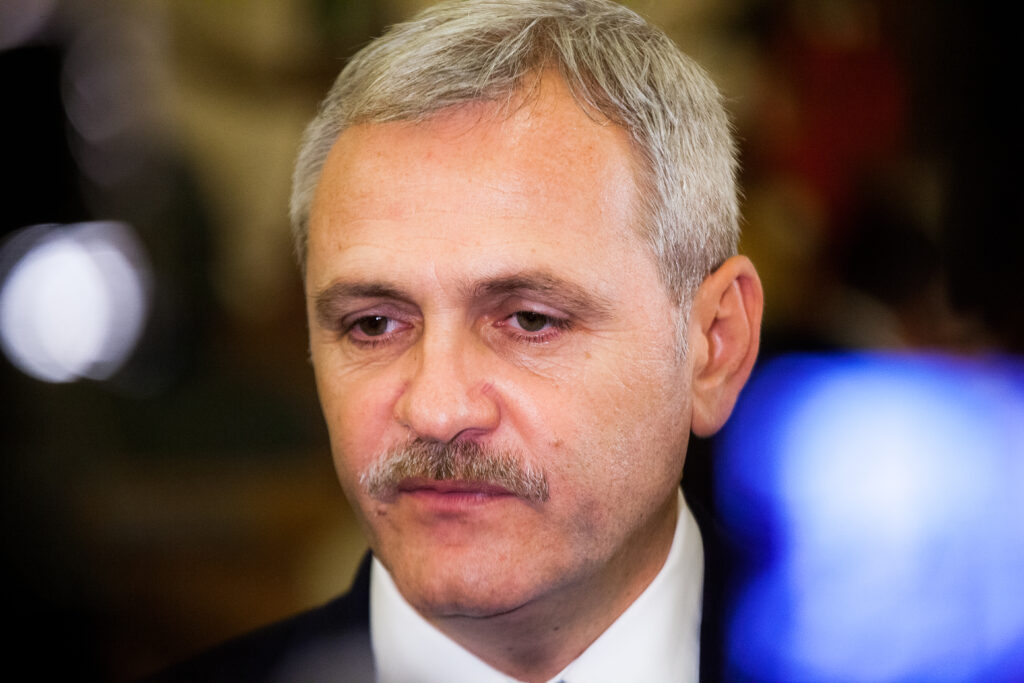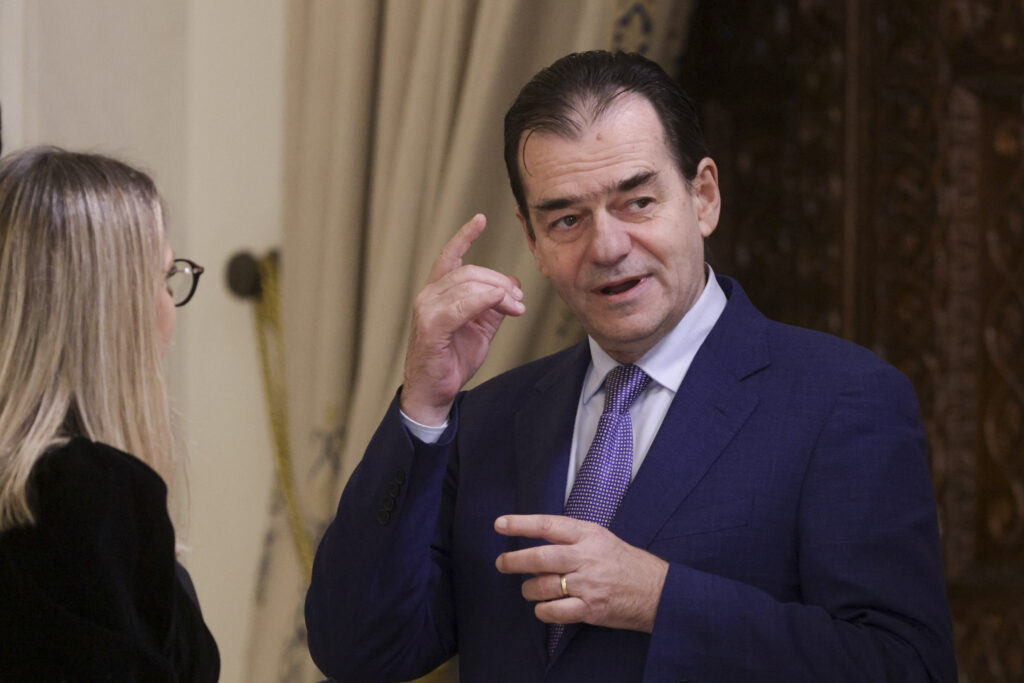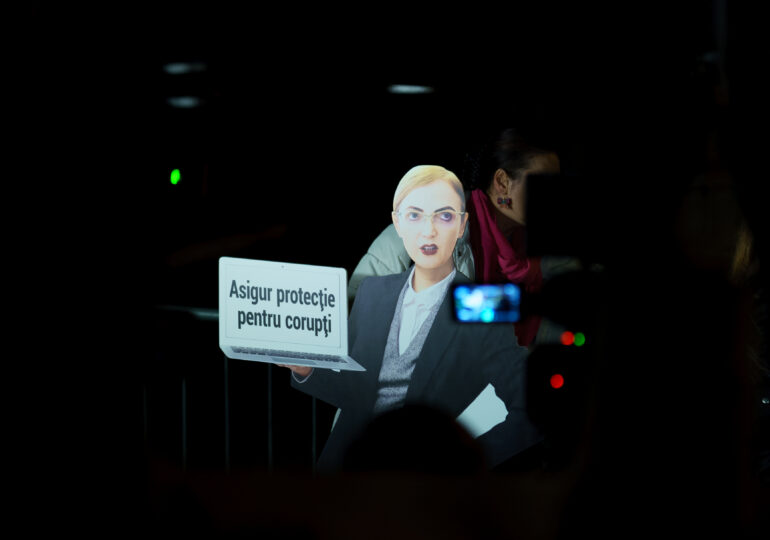Public protest against the actions of Judge Lia Savonea, who has entered into open conflict with Parliament to maintain the privileges of magistrates, signals the approaching climax in this confrontation between the two powers of the state – legislative and judicial.
„Romania can no longer accept a supreme court led by a person (Lia Savonea -ed.) who, for years, has been associated with controversies, pressures, blockages, and decisions that have weakened public trust in Justice,” the civic associations’ statement organizing the protest reads.
Although at the Friday evening demonstration held in front of the High Court of Justice in Bucharest there were hundreds of people, not thousands, such an event is a strong signal for judges and prosecutors.
Street protests against magistrates seeking to maintain their privileges indicate a major problem within the profession, which could compromise it, leading to negative effects for society as a whole.
"The appointment of Lia Savonea as head of the High Court is not a mere promotion, it is the symbol of the Judiciary being captured by a small but extremely influential group connected to political interests and high-level corruption. We are not taking to the streets on a whim...," the protest organizers further state.
Failed Negotiations
The issue of special pensions for magistrates has become the central point of state reform, one on which the credibility and survival of the current governing coalition depend.
If even after the new attempt to solve the issue by Prime Minister Bolojan, who announced that this week a new bill will be reintroduced for resolving the special pensions of magistrates, the problem remains unresolved due to the CSM or the rejection of the law by the Constitutional Court, this dispute will not disappear from the public agenda; in fact, it will intensify.
The tough negotiating approach adopted by Judge Lia Savonea, who controls the Courts of Appeal nationwide and the CSM, has isolated her both from the political class and public opinion. She has no allies outside a significant part of the judiciary, albeit an important one.
On November 13, President Nicușor Dan led negotiations between representatives of the governing coalition and those of the magistrates to find a compromise solution, but the discussions were unsuccessful.
"Each of us expressed our views, but we did not reach a solution accepted by both parties. And we did not even come close to a version that would seem to lead to a formula where we would reach a common ground," Prime Minister Ilie Bolojan stated shortly after the discussions ended.
The unsuccessful attempt by President Nicușor Dan to arbitrate the conflict between magistrates and the parliamentary majority showed the inflexible position of the former regarding the amount of special pensions and the retirement age.
Although the head of state sought a compromise solution, ultimately, Ilie Bolojan read Lia Savonea better, always maintaining that he will not give up.
"The discussions did not lead to a solution agreed upon by all participants, even though the Council's representatives showed openness to solving the issues analyzed, in order to identify optimal solutions that ensure a balanced approach and meet the requirements constantly emphasized in the Constitutional Court's jurisprudence," the CSM's statement released after the failed negotiations states.
Justice Agreement
It must be noted that Judge Lia Savonea, before the negotiations at the Cotroceni Palace, launched a document called The Agreement for Justice and Institutional Stability.
"No administrative, fiscal, or political measure shall be adopted in contradiction with the principles of Judicial independence and the constitutional balance of powers in the state," the document states.
In reality, the agreement represents an ultimatum to society by which prosecutors and judges try to remove from the public agenda any reference, political stance, or legislative attempt related to the salary and pensions of magistrates, both present and future, considering such actions an attack on Judicial independence.
"Any form of political attack, denigrating discourse, or public pressure against the courts or magistrates is incompatible with the principles of the rule of law. Justice must be respected, protected, and supported in exercising its constitutional role, not turned into an instrument of political confrontation," the agreement document proposed by Lia Savonea, head of the High Court of Justice, further states.
Liviu Dragnea's Laws
Despite the public outrage against the privileges of magistrates, it must be emphasized that this situation arose due to repeated decisions by politicians to provide services to judges and prosecutors, in order to buy leniency when it came to investigating and judging corruption cases.

Thus, Liviu Dragnea, former president of the PSD, now in prison, convicted of corruption, before his trial launched all possible machinations to obstruct it, including emptying the courts and prosecutor's offices by offering rapid retirement opportunities.
Today's conflict was generated by the adoption of an emergency ordinance in October 2018 that amended several laws of justice.
Judge Lia Savonea's inflexible position will only exacerbate the conflict, opening up new political fronts for both the president and the parties in Parliament.
The special pensions of magistrates are such an unpopular topic that it will be difficult for social and political actors in Romania to avoid. The longer the resolution of this issue causing dissatisfaction is postponed, the more the position of the magistrates will erode, and the current solidarity will dissolve.
Image of Corruption
It should also be noted that in this issue, prosecutors and judges in Romania have no European support, neither institutional from the Commission or the European Court, nor professional from their colleagues, who do not enjoy the advantages of magistrates in Romania.

"...if these conditions are not accepted, why not try again, maybe even by amending the Constitution, through a revision of it, to impose a single pension calculation system, namely proportional to the contributions paid by each employee, regardless of their field of activity. There should be true equality before the law for all employees," stated Ludovic Orban, political advisor to President Nicușor Dan, one day after the failed negotiations with magistrates at the Cotroceni Palace.
The advisor's position aligns with that of the head of state, and it does not offer much hope to Lia Savonea.
Admitting the emergence of a constitutional conflict and initiating procedures to amend it will quickly turn the Chief Justice into the scapegoat for all of Romania's problems - social, political, and economic, rapidly becoming the image of corruption, just as it happened in the case of Liviu Dragnea.

